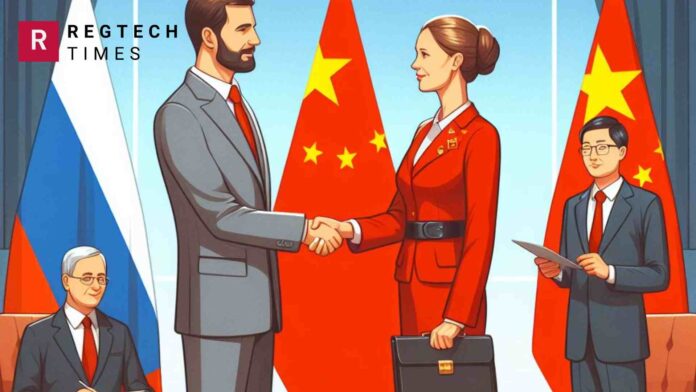Chinese Banks are under the threat of Sanctions if they are found to be aiding Russia in its war efforts. Many of the Chinese banks are state-owned and can see a significant impact if sanctions become a reality.
US Treasury Secretary Janet Yellen concluded her four-day visit to China with a stern warning against any support for Russia’s military efforts. Yellen emphasized that companies, including those in China, should not provide any form of assistance to Russia’s war efforts, cautioning that they would face severe consequences if they did.
Yellen’s remarks, delivered at a press conference in Beijing, marked a significant escalation in the US response to Russia’s invasion of Ukraine. She specifically warned that Chinese banks facilitating significant transactions for military or dual-use goods to Russia could be subject to US sanctions.
The Biden administration has been actively targeting firms worldwide that aid Russia in evading sanctions imposed by the US and its allies since the invasion. While China has been previously warned, Yellen’s direct threat of sanctions during her visit was notable.
The warning coincided with the arrival of Russian Foreign Minister Sergei Lavrov in Beijing for discussions, including the Ukraine crisis. Despite China’s neutral stance on the war, its trade with Russia has surged since the conflict began.
Yellen highlighted the US’s ability to sanction any activity aiding Russia’s military, emphasizing that assisting Russia in its war against Ukraine is unacceptable. The US recently sanctioned six North Korean Bankers for their role in aiding the nuclear program of DPK. She underscored that US sanctions could severely impact any banks involved, as the Treasury has the power to restrict their access to US dollars, a critical element for banks operating internationally.
Tensions Beyond Chinese Banks
The tension between the US and China extends beyond the Russia-Ukraine conflict, with Yellen also addressing what the US views as excessive Chinese investment in manufacturing, particularly in green-energy technologies. She expressed concerns about China’s overcapacity potentially affecting other economies and emphasized the need for China to stimulate domestic demand.
Yellen’s visit concluded with an agreement to launch talks focused on achieving balanced growth in both domestic and global economies. This development indicates a continued effort to address China’s over-investment in supply and macroeconomic imbalances. The talks will commence next week with a meeting between US-China working groups in Washington.
The US-China relationship remains complex, with geopolitical and economic issues continually shaping their interactions. Yellen’s visit and the subsequent talks underscore the delicate balance between cooperation and competition that defines the relationship between the world’s two largest economies.



